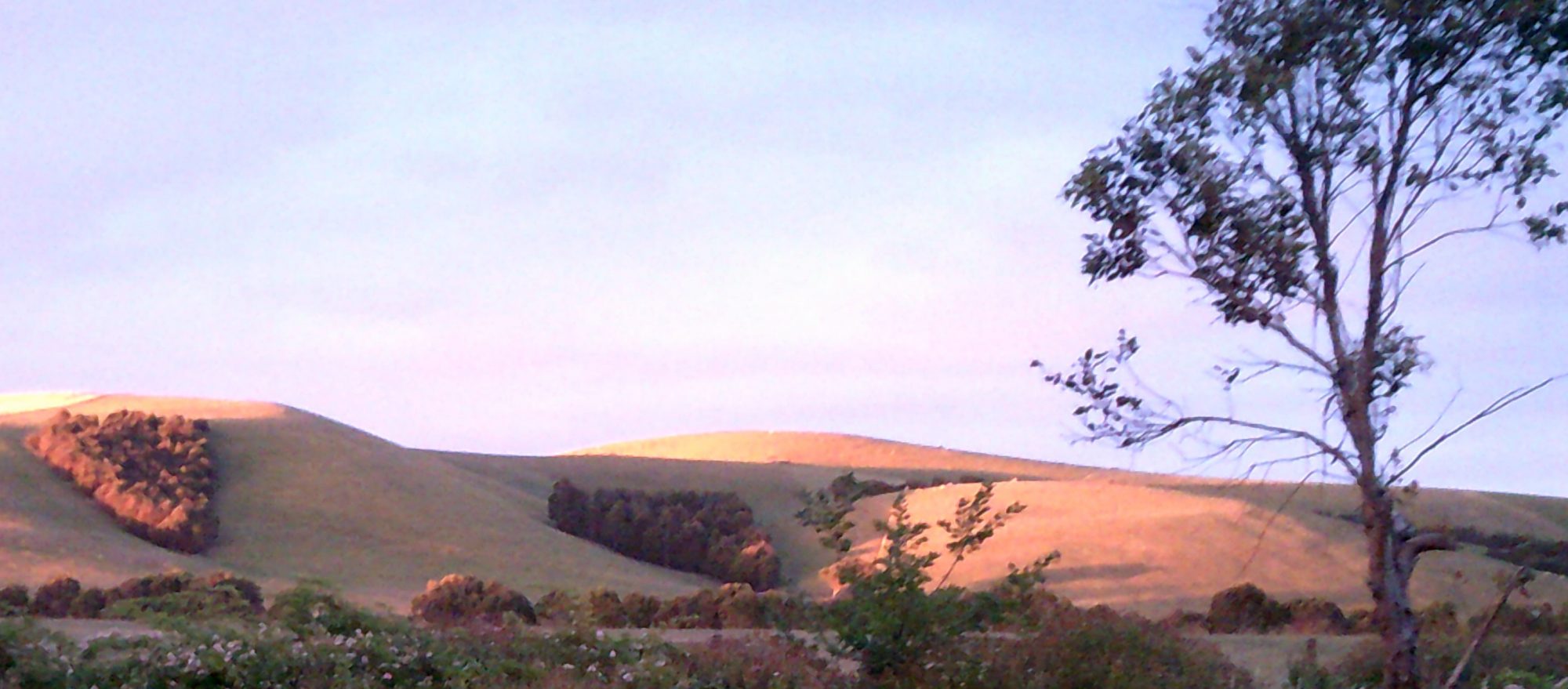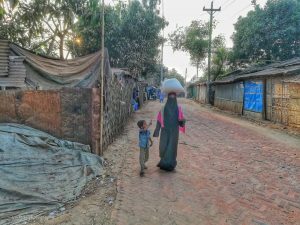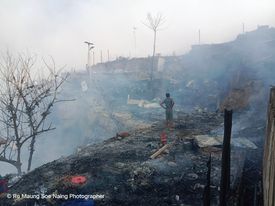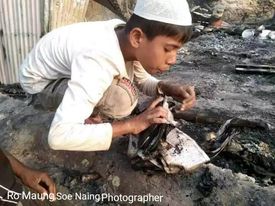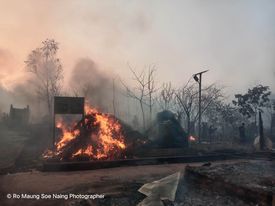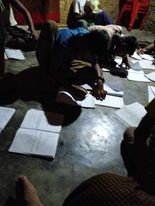 Many children in the refugee camps do not get an education. With this in mind some refugees set up their own schools, but the task is difficult because there are very few resources available. Added to this, the camp officials will often close the schools down. This has resulted in some teachers starting schools in secret, sometimes at night by candlelight. Such is the life and disadvantage of refugee children.
Many children in the refugee camps do not get an education. With this in mind some refugees set up their own schools, but the task is difficult because there are very few resources available. Added to this, the camp officials will often close the schools down. This has resulted in some teachers starting schools in secret, sometimes at night by candlelight. Such is the life and disadvantage of refugee children.
What is the future for the Rohingya refugees?
Nearly a million Rohingya Muslims live in the refugee camps of Cox’s Bazar, Bangladesh. Life in the camps is hard. Refugees reside in squalid bamboo and tarpaulin shacks in areas that swelter in summer and flood in the rainy season making them subject to swamps and landslides. Services are inadequate and there is constant suffering among the Rohingya families. There is no hygienic sanitation and a lack of clean water. The medical facilities are inadequate and there is no appropriate education for children. In 2023 the World Food Program (WFP) cut rations by 17% causing many refugees to go hungry. Tragedy strikes the refugee camps constantly. People get sick from diseases and children drown or get buried in landslides. There are assaults, abductions, rapes and murders that serve to continue the genocide of the Rohingya people. Rarely is anyone called to account. Refugee life is so unbearable that most camp residents long for their homeland, but the prospect of repatriation back to Myanmar is neither safe, nor is it desirable due to the destruction of homes and the government acquisition of Rohingya lands. Added to this, there is ongoing fighting. The continuing persecution of the Rohingya people, which is taking place in the homeland makes it unsafe and far from suitable for any repatriation.
The genocide carried out against the Rohingya continues, both in the homeland and in the refugee camps. The Bangladesh camps have now been infiltrated by terrorists. Two groups, one of which fought against the Myanmar junta, are now fighting with each other and threatening the refugees who refuse to join them in the ongoing violence. No one is safe in the Bangladesh camps. The sound of shooting can be heard on most nights and the images of bodies left dead and mutilated in the streets or in shelters appear constantly on the Internet, but no one is keen to address the problem.
Notably, the word ‘camp’ means a place of temporary shelter, but for most refugees the camps are a home for life. Only 1% of the world’s refugees ever get resettlement in a third country. In reality, the word ‘camp’ is a euphemism for a prison, a place where unwanted people are confined so they don’t integrate with the population of the host country. Almost all displaced persons are victims of wars and capitalist development, with only a small portion of refugees having suffered from natural disasters.
No one comes to the aid of the Rohingya people because they are caught in the struggle for economic supremacy in the region. Myanmar is influenced by two of the world’s super powers China and Saudi Arabia, both of whom have crucial investments in Myanmar’s bourgeoning industries. That said, these industries need cheap labour, hence the interest in repatriating the Rohingya. Development and global business get priority over the rights of indigenous people and this is a pattern across the world. With this in mind, the Rohingya have very little hope of a good future in their homeland. As for life in the camps, the Rohingya are constantly punished for being who they are. They are beaten, abused, robbed of what little they have and denied their dignity and human rights.
As more of the refugees long for their homeland, the question as to whether repatriation will ever be possible is something the world chooses to ignore. Capital, politics and military expansion in the regions come before human beings. Refugees are collateral damage, a blot on the landscape, a byproduct of wars, militarism and capitalist expansion. Many of the Rohingya families have spent more than thirty years in the Bangladesh camps. Many refugees were born in the camps, but they are not afforded citizenship as prescribed by international laws. Many Rohingya refugees arrived in 2017 to escape the ethnic cleansing carried out by the Myanmar junta. Since then, there have been various attempts at repatriation by the Bangladesh Government, who just want to be rid of the Rohingya problem. However, it is against international law to return refugees to a war zone. Bangladesh is not a signatory to the Refugee Convention, but it must still act in accordance with what the world will accept as humane, but this does not stop the alleged bribery and corruption or the turning of a blind eye to criminal behaviour that serves the government’s best interests.
Myanmar remains very unstable and unsafe for the Rohingya people. Nonetheless, in May of 2023 Bangladeshi officials made several trips to Myanmar in order to seek repatriation for the refugees. It was widely reported that twenty Rohingya Muslim refugees and seven Bangladeshi officials visited Maungdaw Township and nearby villages in Rakhine State in order to create plans for resettlement, but there were no guarantees for the safety of refugees. The plan was to delegate the refugees to Myanmar’s refugee camps, which was deemed unacceptable.
The majority of the Myanmar population are Buddhists and they have constantly expressed their dislike of the Rohingya Muslims. In addition, the Myanmar government seemingly has no intention of restoring rights to the Rohingya people. The Rohingya are not even recognised for who they are, rather they are called Bengalis and aliens. With no recognition of a Rohingya identity or human rights the notion of repatriation to the homeland is an extremely dangerous one for the Rohingya families.
What next? The only solution for the Rohingya is resettlement in a third country, in which case governments have to open their borders and increase their intake of refugees. Alternatively, (or in addition) Bangladesh has to accept the refugees as residents and give them citizenship. Integration into the Bangladesh community makes more sense for a lot of the Rohingya refugees as they have grown up learning the Bangla language and culture and they are certainly more Bangladeshi than they are Bengali.
Regardless of all the difficulties, the world has to remember that the refugees are human beings and they deserve a normal, safe and productive life. There needs to be a radical change in the way the world deals with displaced persons. Refugee camps are cruel and unproductive places and they are a breeding grounds for criminals and terrorists. Either the camps should be closed, or they need to be opened up to the outside population so a proper integration of the refugees and host communities can take place. The shelters must go and proper housing and services need to be established.
There is no easy solution to the Rohingya situation and there is no will to bring about change, so the suffering of the Rohingya people continues. As the wars escalate unabated, more refugees are needing shelter in camps. While the circumstances worsen many more desperate people are seeking passage elsewhere with illegal human traffickers. Hundreds of refugees who take this journey die at sea. At the same time countries such as Malaysia are constructing huge new prisons for refugees, which could very easily become the modern day labour camps (otherwise known as vocational education camps) like those in China. While the prospect for a good future for refugees does not look good, we must continue to struggle for peace and justice. We must remain positive and ever hopeful of a good outcome.
Dr Chris James.
4/11/2023.
Who will help the Rohingya refugees?
Sino-Indian anti-Islamism makes it impossible for the Rohingya to return home. The displacement of the Rohingya by the Myanmar Buddhist government was both deliberate and planned over a long period of years and it still continues. The first displacement was in 1978, then 1991, 2012, 2016 and 2017. Clearly, these events are the planned perpetration of ethnic cleansing and genocide. Why did no one act to protect the Rohingya? The simple answer is this, China and India have always opposed UN intervention in the persecution of the Rohingya by the Myanmar government. The long-term plan to forcibly displace the Rohingya has both geographical and economic benefits for the two major powers China and India. Bangladesh, the puppet government for Saudi Arabia and China, had no choice but to accept the influx of Rohingya refugees into Bangladesh and as a consequence the refugees have experienced ongoing persecution. Added to this, the UN is largely supported by donors whose business interests are entwined with the super powers. Whether the Myanmar Junta will ever be punished or called to account for the atrocities against the Rohingya people is a matter of pure speculation. Business first, humanity later! In the meantime, sickness, hunger and terrorism reign free in the camps with no one willing to addresses the problems.
Lives Matter.
What is the future for Bangladesh’s Rohingya refugees?
China is putting pressure on Myanmar to repatriate the Rohingya, but will the Rohingya be treated the same way as China’s Uyghurs???
Since 2020 I have been working online as a Human Rights Advocate for the nearly one million Rohingya Muslims housed in the Bangladesh Refugee Camps at Coxes Bazar. The site is made up of several camps, the largest being the registered camp of Kutupalong. Since the 2017 coup in Myanmar the complex has grown with many smaller camps and the area is now collectively known as the Kutupalong–Balukhali refugee camps.
Myanmar, or what used to be known as Burma, is largely a Buddhist country which has endured decades of repressive military rule, extreme poverty and ethnic cleansing, resulting in hundreds of thousands of people from minority groups being displaced, many are now living in Bangladesh refugee camps.
The geographical site of the camps is extremely hazardous. It is subject to coastal winds, cyclones, inundation, floods and landslides, these events have already cost many lives, including those of small children, some of whom have been buried alive under shifting earth. The living conditions are appalling, large families are crammed into the very small shelters, many of which are along steep and unstable slopes. There is no proper sanitation, open sewage runs in between shelters and when it rains it seeps into the bamboo and tarpaulin structures. The camp is set in a regional landscape with natural beauty, much of which is now polluted with waste and contaminants from the camps. It may be a little-known fact, but refugee camps are an ecological disaster and they are growing in size.
The camp with its barbed wire fences and gun towers is effectively a high security prison. No one gets beyond the wire without permission. Alliance Sans France attempt to run a small primary care hospital, but there are never enough supplies to meet the demand. Education in the camp is almost non-existent. Teachers who attempt to set up small schools for children are immediately shut down. Some classes have been known to take place in candlelight and they last for a few weeks before they are disbanded. There are more children in the camps than there are adults and they have no future.
Food supplies are inadequate causing many refugees to be suffering from malnutrition, this was made worse this year when the World Food Program cut the already meagre rations of food by 17%. There is very little drinking water, refugees are forced to risk their lives by slipping under the fence to beg for clean water from nearby residents.
The camps are plagued by corruption and the infiltration of terrorists from Myanmar’s revolutionary armies. Assaults, shootings, rapes and abductions happen almost daily. Refugees live in fear for their lives and little hope of ever getting resettlement. Only 1% of refugees get resettlement in a third country, as a result some refugees have been in the camps for over thirty years. Added to this, there has been little support from the international community for fear of offending the major powers who have significant investments in Myanmar and the region.
Refugees in the camps are hungry, people are sick and people are dying from fatigue and despair. These are people who have lost everything, yet they are treated like outcasts and criminals. Bangladesh never wanted the influx of refugees. At the time of the coup in 2017 the Bangladesh Government tried to turn the refugees back, but it is against international law to return refugees to the place of persecution. Bangladesh is not a signatory to the 1951 Refugee Convention, but it is careful to maintain a good reputation for the sake of its economy. Bangladesh has one of the world’s fastest growing economies and it is building massive new business and infrastructure projects with assistance from China and Saudi Arabia. The country could assimilate the refugees as many of the Rohingya speak the Bangla language and are familiar with the culture, but instead Bangladesh has created an apartheid system under the watch of the United Nations, the International Organisation for Migrations and its western allies.
Today, the Rohingya refugees are more unwanted than ever before because China is putting pressure on Bangladesh and Myanmar to resolve the refugee problem which is impacting Chinese investments. China sits behind the current plans to repatriate the Rohingya back to Myanmar, not to a life of freedom, but into another camp overseen by the Myanmar junta. Refugees have been told the camp is temporary, but all refugee camps are deemed temporary, including China’s re-education camps that currently house the Uyghurs.
The Bangladesh Government has been gradually shifting refugees to an offshore island in the Bay of Bengal. To date, 30,000 Rohingya refugees have been relocated to the sinking silt Island of Bhasan Char with little or no contact to the outside world. The shift has been condemned by almost all the refugee agencies. Most of the refugees were seemingly coerced into going to the island with the promise of better conditions, but those promises have not come to fruition. Attempts to shift the rest of the refugees out of Bangladesh are now focused on the repatriation of the Rohingya to Myanmar, where they have no rights to citizenship or services and where the Rohingya are still being subjected to an ongoing regime of persecution (genocide).
Bangladesh signed an agreement with Myanmar on repatriation in November 2017, shortly after they were driven out of Myanmar. The agreement was brokered by China. Now the question arises as to why China is suddenly putting more pressure on Bangladesh and Myanmar to repatriate the Rohingya? Myanmar at the behest of China, needs to build its economy. The repatriation will likely relocate the focus away from Myanmar’s military government and its human rights abuses and it will boost the workforce in respect of China’s investments. The chances of the Rohingya reaping any benefits from this arrangement are minimal. Indeed, they could end up in the same situation as the Uyghurs, that is being reprogrammed to meet China’s cultural and economic agenda.
News from Bangladesh.
Suma, who killed Maheshkhali’s child Mifta in Chakaria, was arrested by RAB. RAB press release. RAB-15 arrested the main accused in the case of brutally torturing and killing a child domestic worker at Chakria in Cox’s Bazar and leaving the dead body in a deep freezer. Recently on May 10, 2023, Suma Akhter, wife of Kamal Harun, a resident of Chakria, Cox’s Bazar, brutally tortured Miftah Mani (10), the housekeeper of her house. Domestic worker Miftah Mani dies due to brutal torture. After the murder, Suma Akhtar kept the body in a deep freezer with the help of her husband. Cleverly, the maid’s family was informed that the maid had died of diarrhoea. Later the house owner Harun and his wife Suma escaped after sending the body of the housekeeper to Maheshkhali by ambulance. Eyewitnesses and family members of the deceased informed the Chakaria police station after finding numerous injury marks on the dead body and signs that the dead body was kept in the fridge after death. In this regard, Md. Syed Noor, the father of domestic worker Miftah Mani, filed a murder case at Chakria Police Station of Cox’s Bazar, whose case is No. 34/215, Date: 16/05/2023, Section-302/201/34, Penal Code. Ever since the incident was known, there was a sensation in the whole of Bangladesh including Cox’s Bazar. After receiving the information about the crime, RAB-15 started intelligence activities to arrest the accused and continued the raiding activities of RAB. When RAB tried to trace the location of the accused through various means, the accused kept changing their location repeatedly to avoid arrest. On the basis of reliable intelligence information, today 27th May 2023 around 03.30 hours, RAB-15, a smart raiding team of Cox’s Bazar, from Muhuripara area of Jhelongja Union under Sadar Thana of Cox’s Bazar, the main accused in the related incident, Suma Akhter (32), husband-Kamal Harun, Sang- Hajianpara, Ward No. 03, Kakara Union,Thana-Chakaria and District-Cox’s Bazar were able to arrest.Arrested Suma Akhtar confesses his involvement in the incident. The arrested accused has been handed over to Chakaria police station of Cox’s Bazar district for taking necessary legal action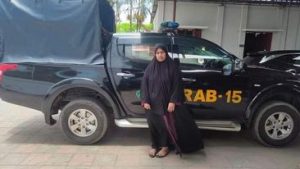
Cyclone Mocha hits Myanmar and Bangladesh Refugee Camp
Shocking fire at the Bangladesh Refugee Camp.
What is the furture for Myanmar and the Rohingya.
What would it take to restore peace to Myanmar? It’s a taxing question because Myanmar, much like another global flash point Taiwan, could trigger a serious world war.
To predict any kind of future for Myanmar we have to look to China and its influence, not just in Myanmar, but across the region.
Half a century ago China was an economic basket-case, but after a long period of economic stagnation today China is second only to the United States and its on tract to take over the leadership. We are living in times when China is a formidable power and it is looking to increase its interests.
Myanmar is crucial to China. Since 1989 the Chinese have supplied Myanmar with military equipment, which includes jet fighters, armoured vehicles and training for the Burmese Army. China’s ambitions extend beyond the Bay of Bengal to the Pacific and the Indian Oceans.
The Myanmar military and its location are a significant investment in China’s ambitions. Access to Myanmar’s ports is essential to China’s future and the current junta is happily serving China’s interests. Indeed, since the coup China has prioritised its economic investment in Myanmar. This includes a $2.5 billion gas fired power plant that will be 80% owned and operated by the Chinese. Added to this China has promised to build dams, a high- speed rail and a deep-sea port at Kyaukphyu. This would enable China’s access to the Indian Ocean and well beyond.
China’s plans are to reduce its dependence on other countries such as Australia and the Middle East. As for Myanmar, China is increasing its relationship with the junta while as the same time creating a massive debt-trap for the Myanmar people.
Numerous commentators suggest that China is planning for a war, whereby Myanmar and its new infrastructures would be crucial to China’s strategic position in the region.
Many refugees dream of returning to their Myanmar home, but the truth is the junta are not going to welcome them or provide them with any legal rights. The Chinese are more likely to imprison returning refugees because the majority of them are Muslims.
As of 2022 China was reported to have imprisoned 1.8 million Muslims in secret internment camps in China, most of the prisoners appear to be Uyghurs, but also included are Kazakhs, Kyrgyz and other ethnic Turkic Muslims. Some Christians and some foreign citizens including Kazakhstanis, have also been imprisoned. With the Chinese in control of Myanmar, there is little hope for the safety of Muslims.
The world condemns the Myanmar junta for its ongoing genocide of the Rohingya people, but even a conviction in the International criminal court is not going to alter the geo-politics as it is currently being played out. Myanmar lives with arms embargoes from the several nations, but these countries are allegedly still doing business in Myanmar.
Accountability for the atrocities and protection of refugees is unlikely to be high on China’s agenda and therefore given little credence from the Myanmar government, now or later.
A new Myanmar is invariably going to be Chinese dominated. I can’t see this being a safe haven for Muslims or Christians.
